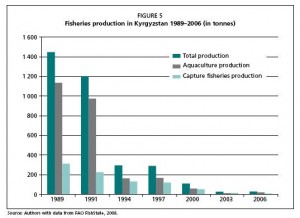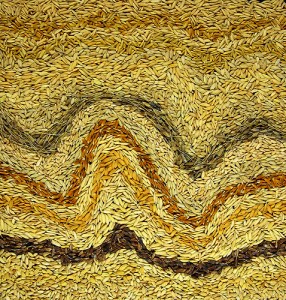The point is that agriculture, like modern human behaviour, was not a one time great invention, but the product of social and environmental circumstances to which human groups with the same cognitive potential responded in parallel ways. The question in both cases is: what were the common denominators of those circumstances?
That’s from a post over at The Archaeobotanist which starts by talking about “modern human behaviour” rather than agriculture, but sees parallel processes at play in the origin of both. So, in the same way that “the cognitive architecture for modern behaviour was around but the innovations that we regard as ‘modern’ emerged when social and environmental circumstances demanded,” and this happened in different places at different times, so likewise the “cognitive architecture” for agriculture was widespread and there were therefore many “centres in which societies converged on agriculture,” with the concomitant “behavioural changes towards manipulation of the environment in favour of the reproduction of a few food species,” triggered by particular “social and environmental circumstances.”
Fair enough, but how is this new? There’s a comment on the post in which Paul Gepts makes this very point
…I am somewhat surprised that the issue of parallel inventions of agriculture is still an issue. The concept of centers of origin/domestication has been around for a century, thanks to Vavilov, Harlan, et al. … I must be missing something here, because for some time agriculture has been considered an example of multiple, independent inventions.
I’m looking forward to following this heavyweight exchange.

